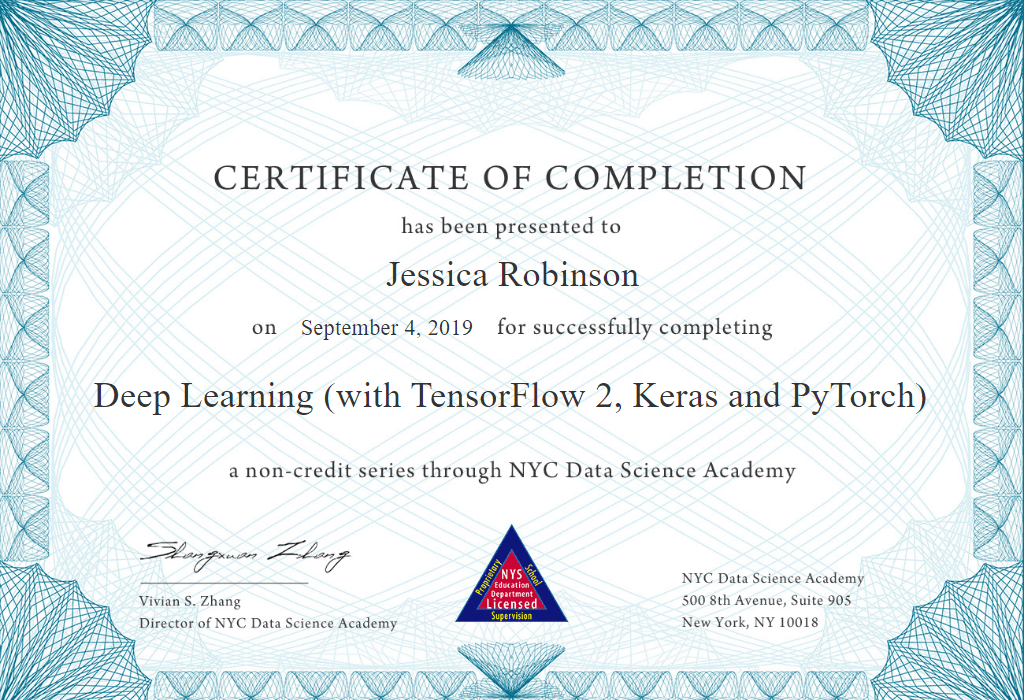A class for an introduction to artificial neural networks that brings high-level theory to life with interactive labs featuring TensorFlow, Keras, and PyTorch.
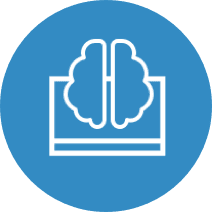
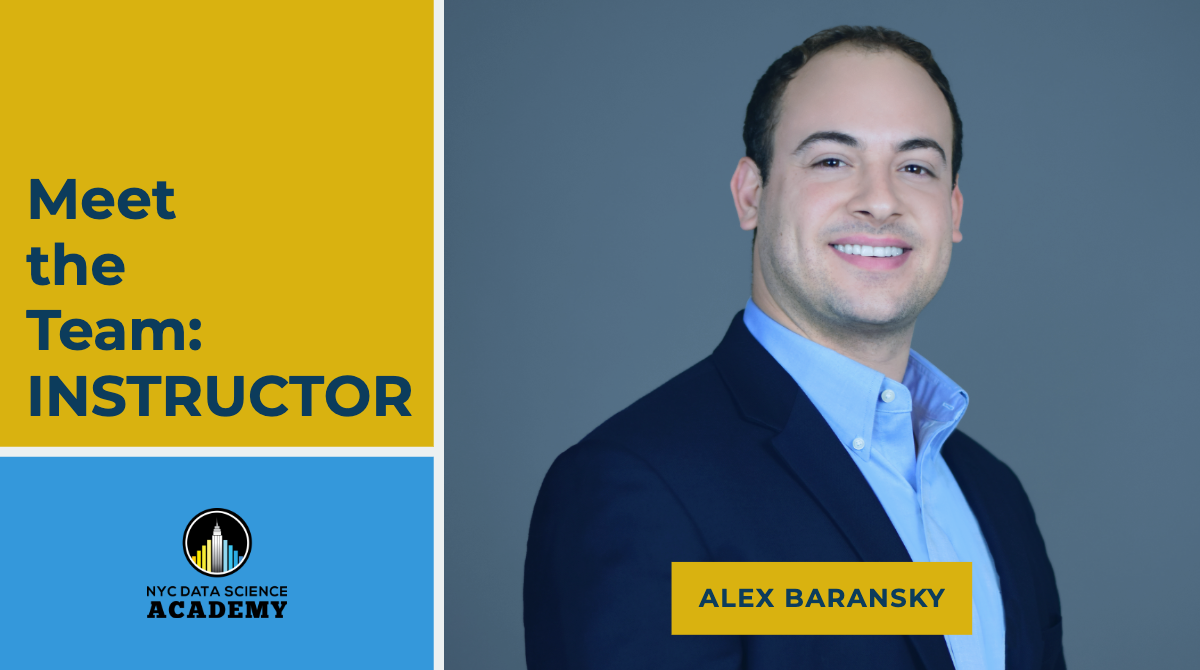

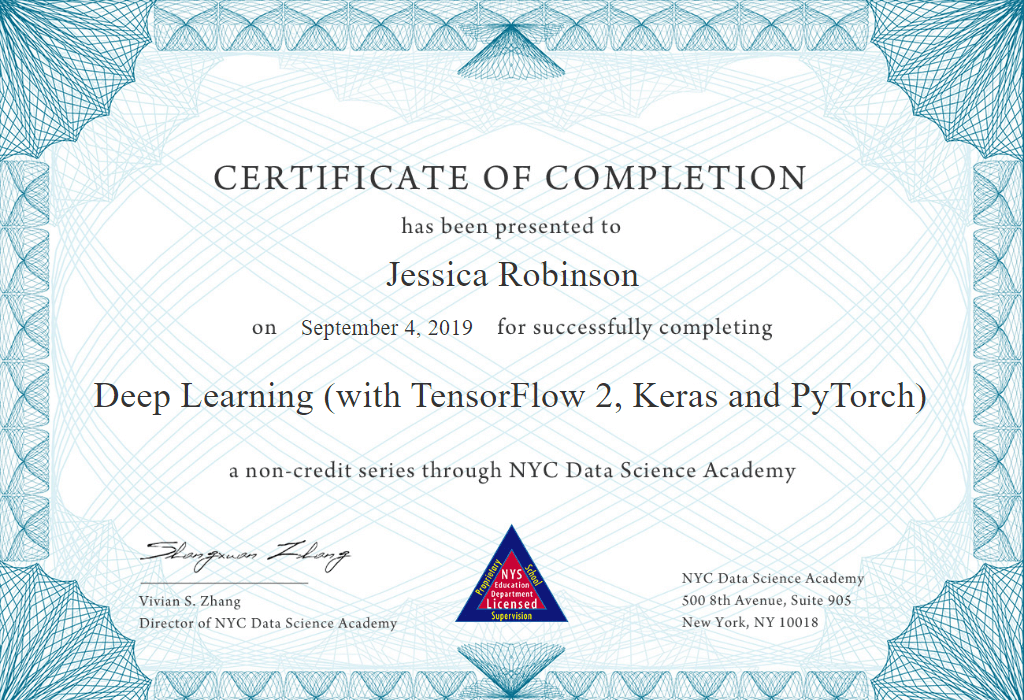
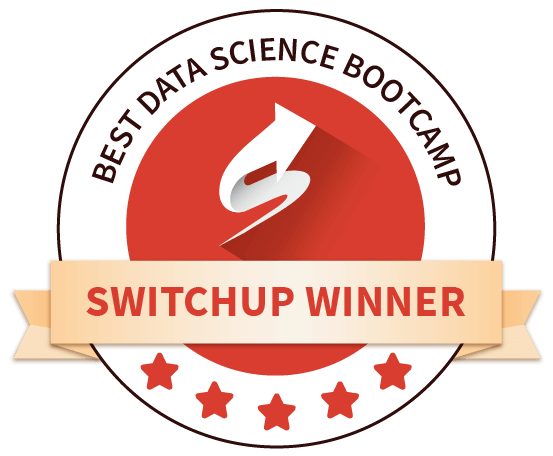
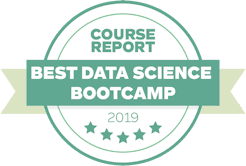
This course is an introduction to artificial neural networks that brings high-level theory to life with interactive labs featuring TensorFlow, Keras, and PyTorch — the leading Deep Learning libraries. Essential theory will be covered in a manner that provides students with a complete intuitive understanding of Deep Learning’s underlying foundations. Paired with hands-on code run-throughs in Jupyter notebooks as well as strategic advice for overcoming common pitfalls, this foundational knowledge will empower individuals with no previous understanding of neural networks to build production-ready Deep Learning applications across all of the contemporary families, including:
I could not be more satisfied with my experience at NYC Data Science Academy. I met incredibly impressive and interesting people, learned more than I ever thought I could, made friends, and worked very hard. Within a few weeks after graduating, I was offered my first full-time job as a data engineer. (I do not come from a CS, math or stats background). NYC Data Science Academy is very successful at getting their students fluent in the tools and technologies of data science, and prepared for finding great jobs in the field. The bootcamp is exhilarating, and the people are truly the best. By the end, you will be ready to for a data science position, and you will have broadened your horizons.
I had a Master in Business Analytics before joining NYC Data Science Academy, with a knowledge of programming and data science/machine learning. Though I knew how to make graphs and build models with R and Python, and knew some concepts learned from the online course on EDX and Coursera, this bootcamp was still truly helpful for me. My goal was to explore more deeply the big data techniques including Hadoop and Spark and get a chance to review data science and machine learning stuff in a systemic way. This bootcamp gave me almost everything I desired, with so many unexpected benefits. It was seriously life-changing for me. I achieved something that would otherwise never be possible had I just stuck with online courses. Read on for more detail. All the courses were well-designed. They covered everything I needed in my data science journey. Some might wonder why I chose to spend money on this bootcamp to learn something that seems available online. The reason for me was that I feel my time is quite valuable.
Our instructors are consistently highly rated by their students. They not only know their subject cold, they are experts at teaching you.
Our curriculum is continuously updated to reflect the latest technology trends.
Learn on the latest technology. When you complete this course, you will have a solid foundation in python and the use of the tools.
Jon Krohn
DATA SCIENCE INSTRUCTOR
Jon Krohn is the Chief Data Scientist at the machine learning company untapt. He is the presenter of a popular series of tutorials on artificial neural networks, including Deep Learning with TensorFlow LiveLessons in Safari, and teaches his Deep Learning curriculum at the NYC Data Science Academy. Jon holds a doctorate in neuroscience from Oxford University and has been publishing on machine learning in leading academic journals since 2010. He guest lectures at Columbia University and, along with researchers from the university's Irving Medical Center, holds a National Institutes of Health grant to automate medical image processing with deep learning. His book, Deep Learning Illustrated, is being published by Pearson's Addison-Wesley in 2019 (https://www.deeplearningillustrated.com).
It would be challenging to follow along through the code demos and exercises without some experience in object-oriented programming, ideally Python (introductory course here). Students with experience in other languages (e.g., R) have, however, been very successful.
Certificates are awarded at the end of the program at the satisfactory completion of the course. Students are evaluated on a pass/fail basis for their performance on the required homework and final project (where applicable). Students who complete 80% of the homework and attend a minimum of 85% of all classes are eligible for the certificate of completion.
